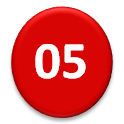 As part of my ongoing project to read the Great Books I have decided to retake psychology from the ground up to better prepare me for James's Principles of Psychology and Freud's works. Looking around for textbooks, I decided upon Understanding Psychology by Morris and Maisto. It is shorter than Gross' and appears to be even more substantial than Feldman's and even better organized. Hazlitt advices thinking by oneself about the subject before embarking in a reading. This is part of the list of questions that I have come up with:
As part of my ongoing project to read the Great Books I have decided to retake psychology from the ground up to better prepare me for James's Principles of Psychology and Freud's works. Looking around for textbooks, I decided upon Understanding Psychology by Morris and Maisto. It is shorter than Gross' and appears to be even more substantial than Feldman's and even better organized. Hazlitt advices thinking by oneself about the subject before embarking in a reading. This is part of the list of questions that I have come up with:- Why has behaviorism declined? Is it still useful? If so, how and when?
- Does punishing children work? Any good alternatives?
- What psychology has to say about strengthening one's willpower and concentration?
- Is there an overarching psychology system? Many of the discoveries of different psychologists, even though they are interesting in themselves, seem to be unconnected to one another. Is there a way to distinguish when to apply the results and methods from classical experiments, and more recent ones, to a given case or problem?
- Has Freud been superseded? Does his methods still work? How do they fit with contemporary psychology?
- Where does mind come from?
- Can one make oneself 'unflappable'?
- Where do language problems come from?
- What has psychology has to say about controlling one's anger and fear?
- Is repression really bad? Can one avoid bad outcomes?
- Is intelligence set? Can one do anything about one's endowment? For us, regular people, is there a way to use our mind's resources better or more efficiently? How about the senses?
- Is it bad to practice makeshift psychology?
- What is the future of psychology like?
I do not expect to have all my questions answered, but I feel that the textbook will set me on the road to discovery. After finishing it, I plan to give myself ample time to read Russell's Analysis of Mind (not particularly recommended by anyone, but it looks interesting and has some philosophical slant) and then proceed to the Great Books on psychology proper. For this project I'm having as backup texts DK's The Psychology Book, which quickly sheds light on some obscure psychologist or other on demand and Hunt's The Story of Psychology. Both I recommend.











0 comments:
Post a Comment